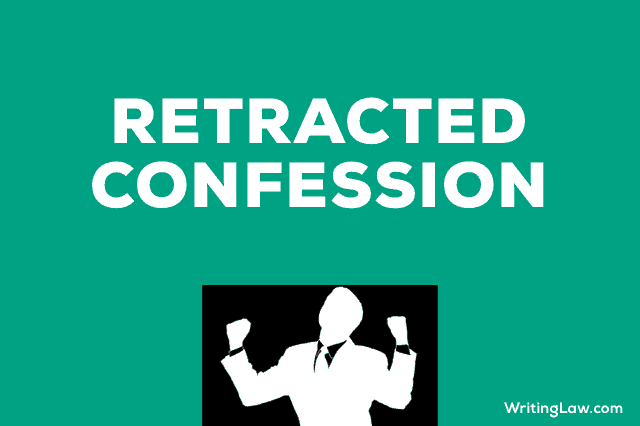
A retracted confession is a statement made by an accused person before the trial begins, by which he admits to having committed the offence but which he rejects at the trial.
Evidentiary Value of Retracted Confession
It is unsafe to base the conviction on a retracted confession unless it is corroborated by trustworthy evidence. Here are two important cases related to the evidentiary value of a retracted confession.
Bharat vs State of UP, 1971
Justice Hidayatullah observed that a court might take into account the retracted confession. But it must look for the reasons for the making of the confession as well as for its retraction. And must weigh both of them to determine whether the retraction affects the voluntary nature of the confession or not.
Manjit Singh vs CBI, 2011
Considering the question of whether retracted confessions of the co-accused could be relied upon to convict the accused, the court held that the retracted statements could be used against the accused as well as co-accused, provided that such statements should be truthful and voluntary when made.
In the said case, two accused persons made confessional statements, and subsequently, they retracted from their statements.
The court observed that:
A confessional statement given under section 15 of the Terrorist and Disruptive Activities Act (TADA ) shall not be discarded merely for the reason that the same has been retracted.
You may also like to read:
1. Statement and Confession under Section 164 CrPC
2. Confession in Police Custody – Is it Relevant
- Article 334A of the Constitution of India - 14th April 2024
- Article 332A of the Constitution of India - 14th April 2024
- Article 330A of the Constitution of India - 14th April 2024







